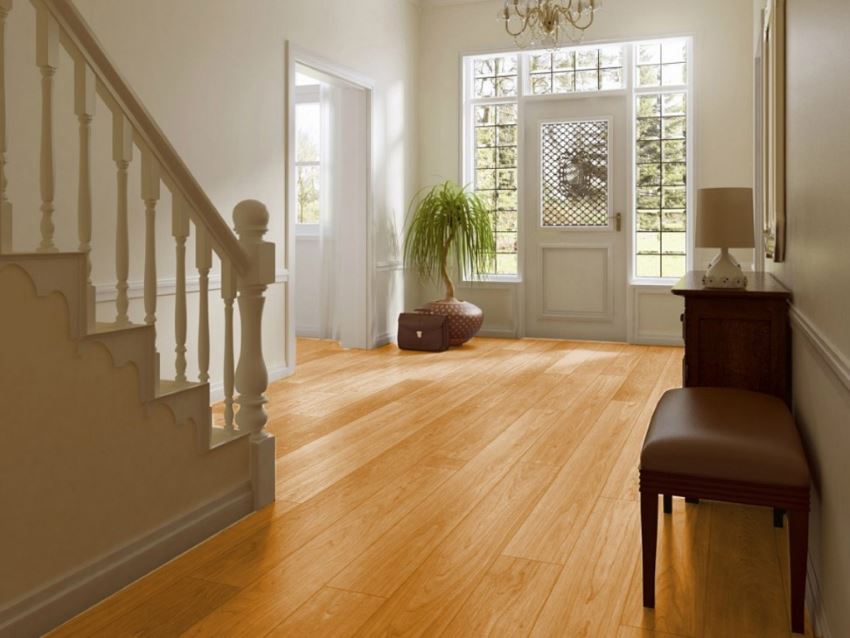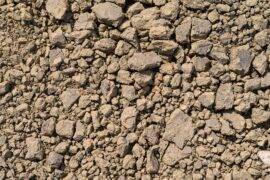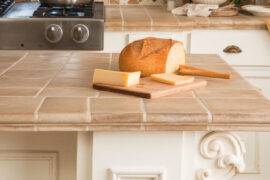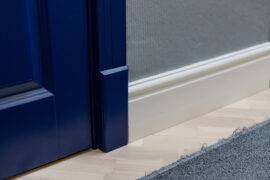Shopping for flooring can be overwhelming, especially when trying to select eco-friendly options for the home. Some selections that claim to be eco-friendly may be less than green, while the addition of toxic adhesives such as glue can cast a dark shadow on the flooring installation process. Are there non-toxic hardwood flooring options? Yes. Are there non-toxic glue options? Absolutely. Today we’ll highlight a few helpful areas to focus on when trying to find the right hardwood flooring for your home. Read on for all the details…
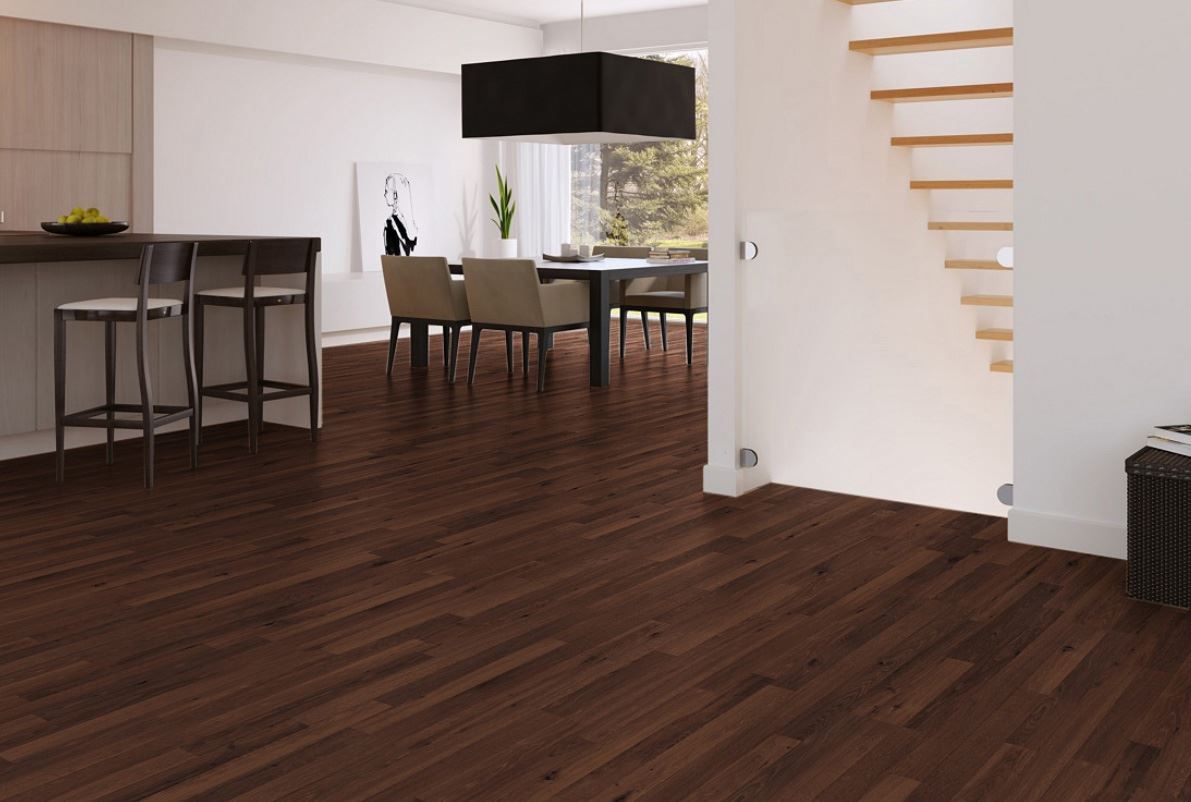
Hardwood Flooring Options
In terms of safe, non-toxic flooring options, hardwood flooring can be an excellent choice. When it comes to formaldehyde omission and chemical concerns, hardwood has the potential to be a safe bet, but note that the manufacturer of the wood and the adhesive method can make a big difference. Let’s start with the wood itself.
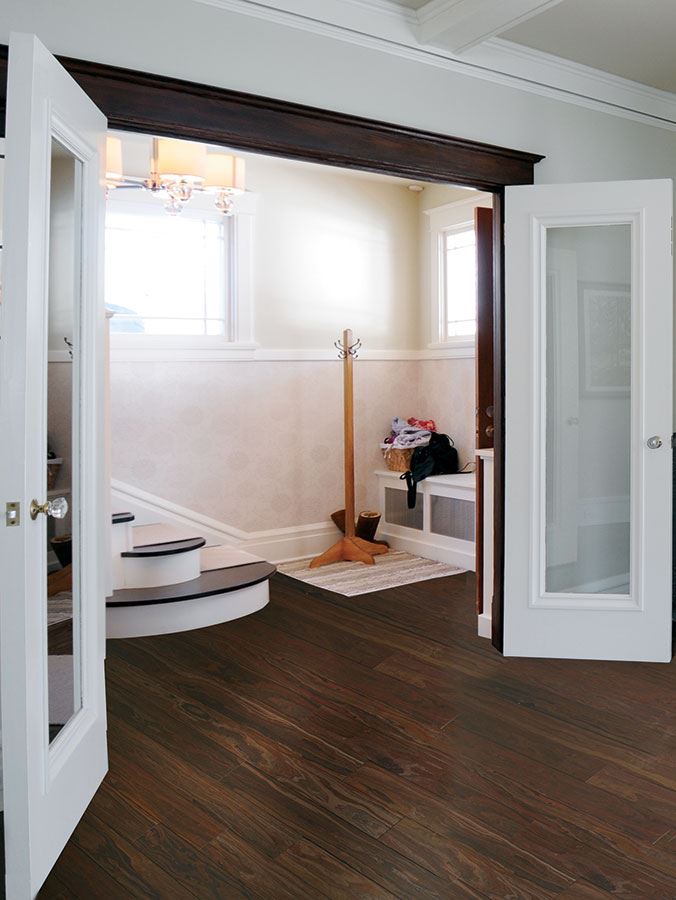
When determining if the wood is non-toxic, it pays to ask about formaldehyde emissions. According to Toxic Free Kids, the World Health Organization recommends that emissions be lower than 0.042 ppm. Not to mention, it’s important to seek products with low VOC (volatile organic compound) emissions. BuildDirect highlights the importance of investigating the floor’s rating, pointing consumers to E0, E1, F****, P1 or P2 CARB ratings for the most environmentally responsible (and safest) options.
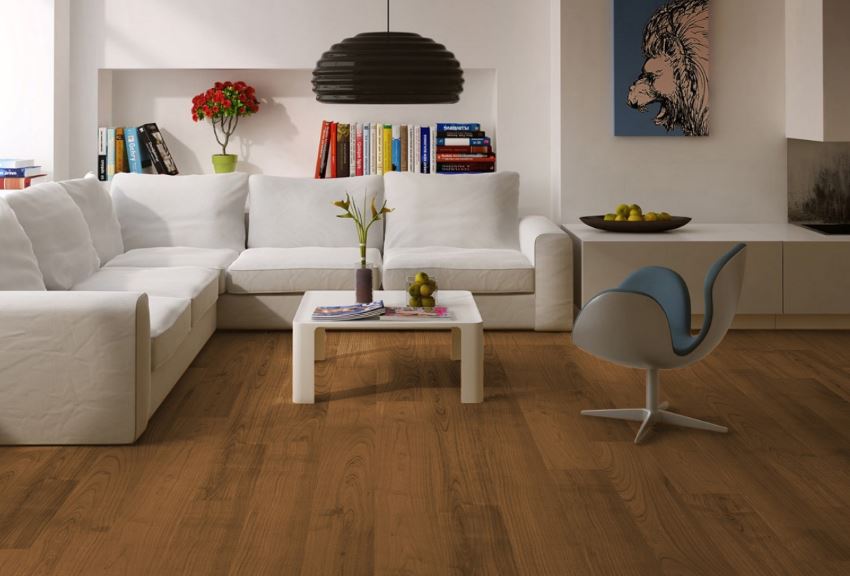
While it may seem excessive to question every manufacturer or retailer of hardwood flooring, you must do your research. For example, some companies may sell products with high-formaldehyde emissions without divulging these potentially dangerous levels to customers. If there’s any doubt about the safety of the flooring, ask for the manufacturer’s Material Safety Data Sheet to receive accurate information about formaldehyde emissions and more.
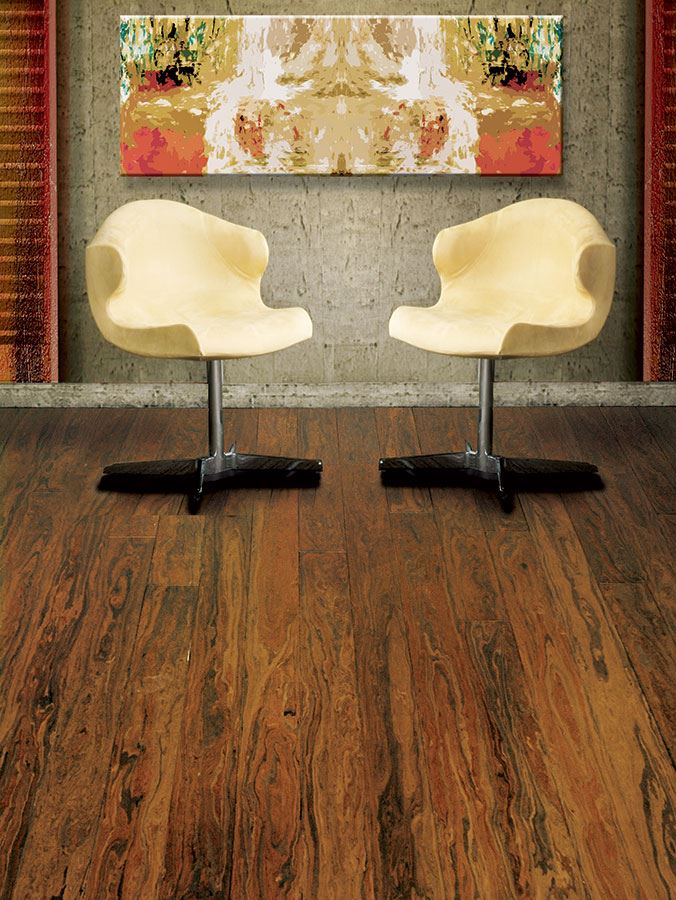
If you’re concerned about toxins that can be released when you have to finish the flooring on your own, it may pay off to purchase wood that is pre-finished, or to stick with natural oils for sealing purposes.
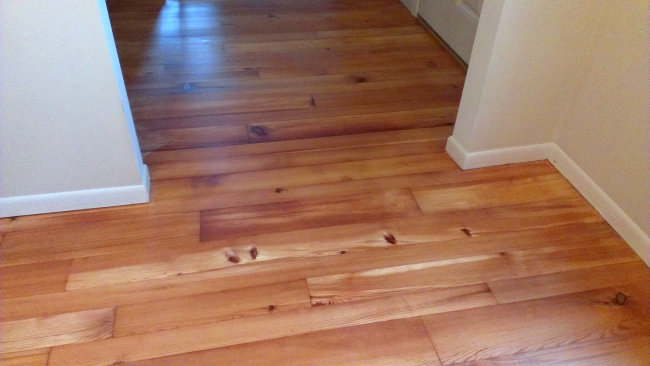
Installing Hardwood Flooring
When it comes to adhering the wood to your floor, you may prefer to select a floating floor, or to opt for the use of nails or screws rather than glue. If glue is the best option for the type of flooring you choose, go for a non-toxic glue. The importance of VOC-free adhesives can’t be underestimated.
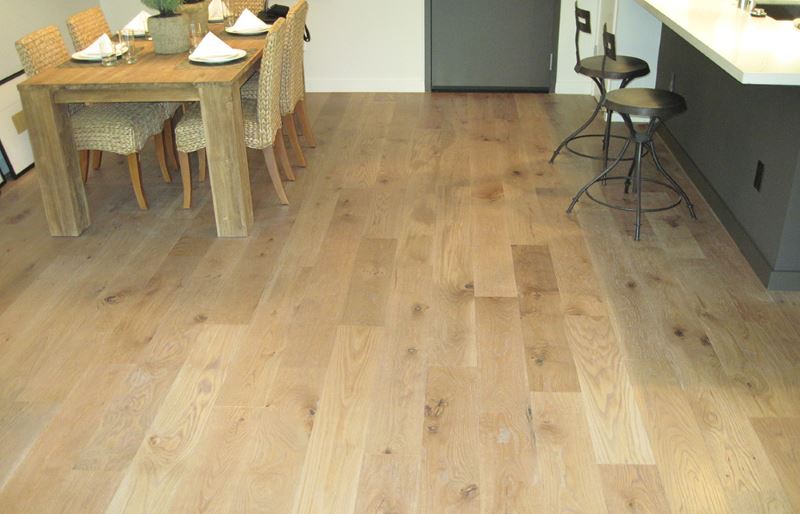
If you’re installing wood over a concrete floor, subflooring will likely be necessary. Plywood is a popular choice, but be careful here, as plywood is often treated with formaldehyde. Opt for formaldehyde-free plywood to remain in the non-toxic zone.
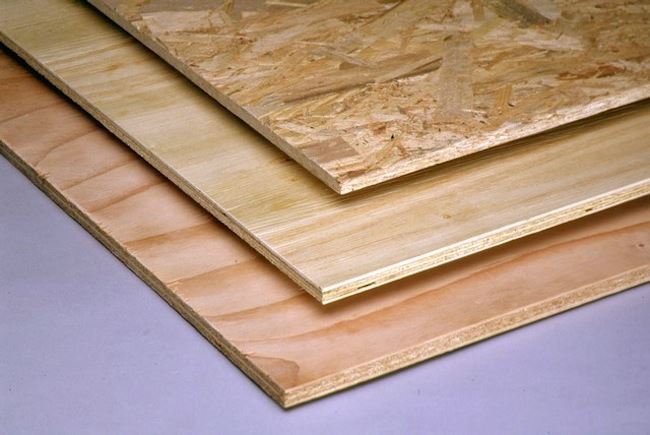
Eco-Friendly, Sustainable Solutions
Next comes the question of eco-friendliness. Is the wood responsibly sourced? Luckily there are resources to assist you in your quest for environmentally friendly hardwood flooring options. For example, the Forest Stewardship Council can help guide you in your decision, as wood products from FSC-certified forests come from trees that are regenerated (not to mention, ecosystems that preserve biodiversity).
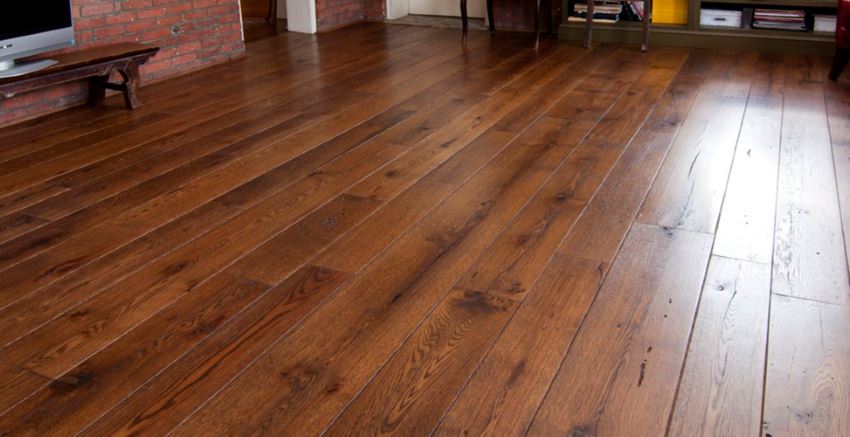
To maximize the eco-friendly quality of your flooring, note that bamboo flooring is a very sustainable option, as bamboo grows quickly, and therefore can regrow quickly after being harvested.
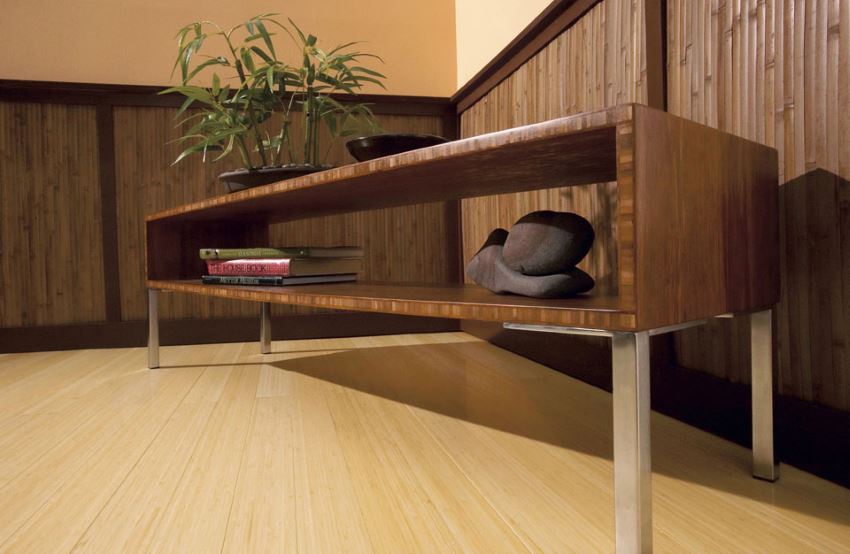
Note that while we feature hardwood flooring from a variety of sources and companies in today’s images, we are not claiming that any of these items are 100% green. Do your research! Overwhelmed? Don’t be. While it can seem like a daunting task to track down eco-friendly, non-toxic flooring, any research you do will be better than blindly choosing hardwood flooring without investigating the issues mentioned today. View your research as empowering and clarifying rather than overwhelming. You’re the consumer–you deserve to make the best choice!
